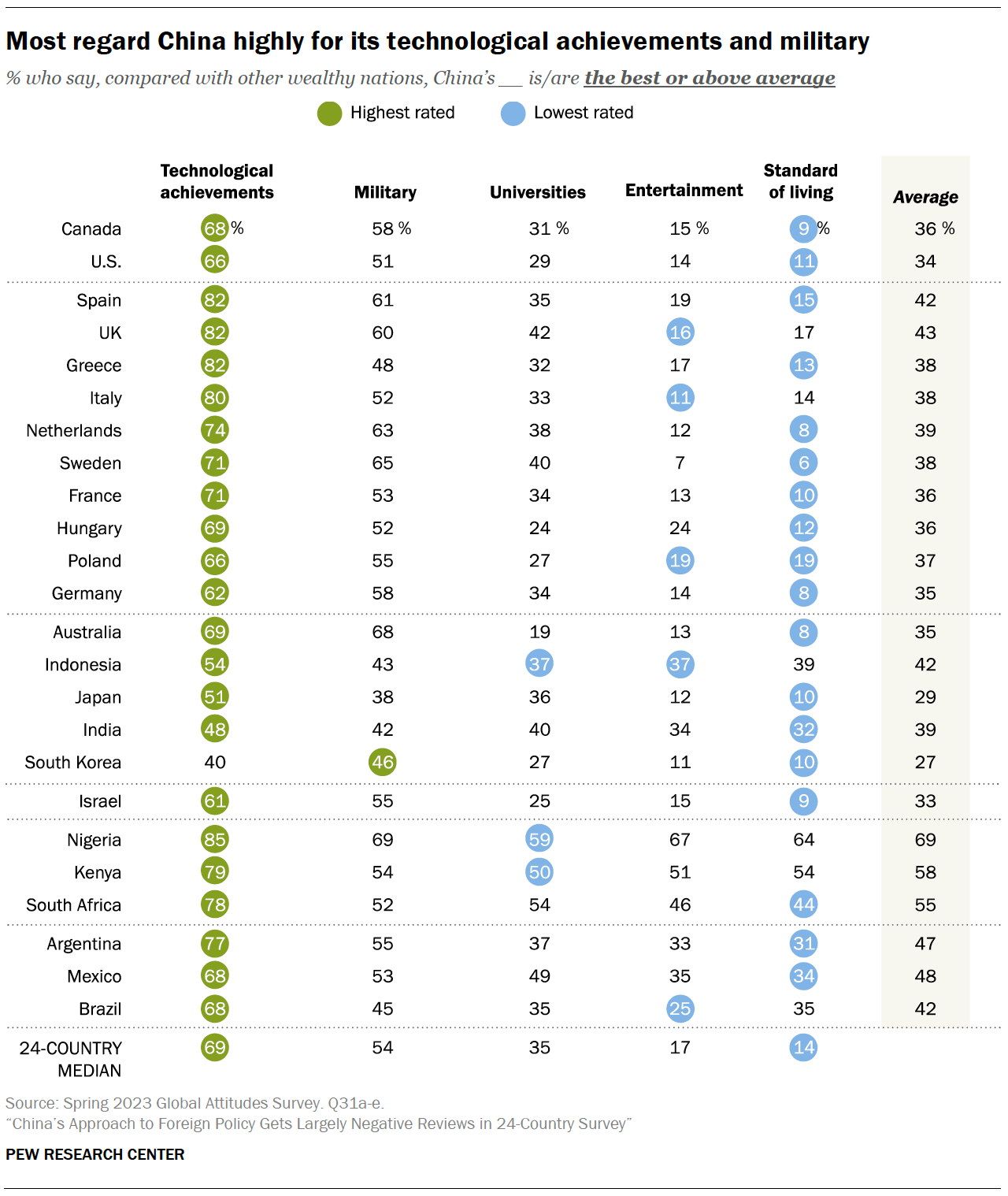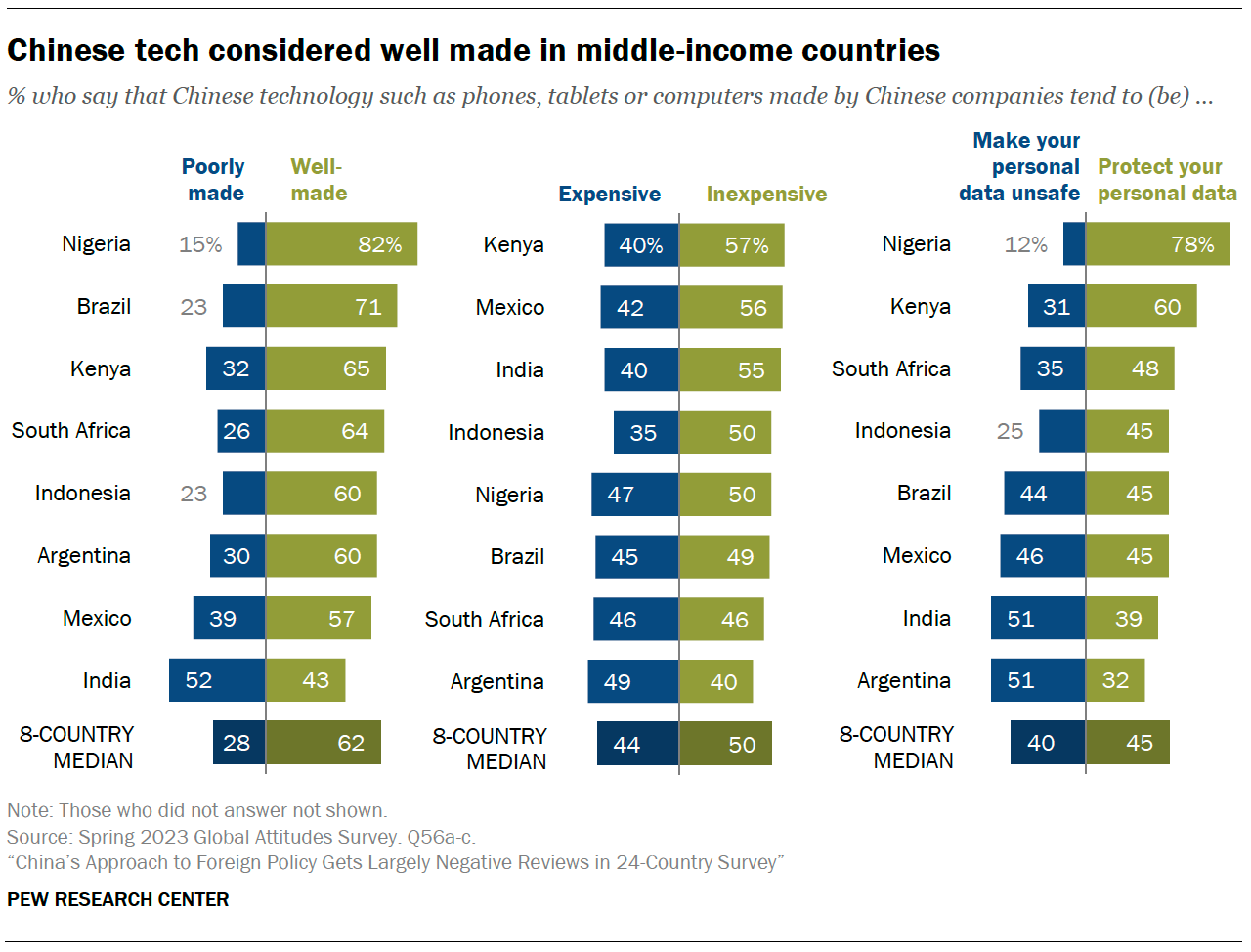When asked to rate some elements of Chinese soft and hard power against other wealthy nations, most in the countries surveyed recognize China’s technological achievements: A 24-country median of 69% say they are the best or above average among wealthy nations. Large shares also acknowledge China’s military (a median of 54%) and a sizable minority say Chinese universities are above average (35%).

China’s entertainment (such as movies, TV and music) and standard of living are not highly regarded: Medians of 17% and 14%, respectively, call them the best or above average. Instead, a median of 37% say Chinese entertainment is below average or the worst relative to wealthy nations, and 48% say the same about China’s standard of living. Roughly three-in-ten call both average.
Among two of China’s neighboring wealthy countries – Japan and South Korea – evaluations of Chinese soft power are, on average, lower than other places. South Korea also stands out as the lone country where considerably fewer than half (40%) rate China’s technology as at least above average. They also are the only place to rate China’s military higher than its technological achievements.
When looking at perceptions of Chinese soft power writ large, Nigeria, Kenya and South Africa stand out for their positive ratings. Across the five measures, averages of 69%, 58% and 55% call China the best or above average in each country, respectively. No other country’s evaluations of these facets of China’s image average above 50%. Adults in Kenya and South Africa are also the most likely to rate each element as the best: For example, about a third of Kenyans and South Africans say China’s universities are the best relative to other wealthy nations’, more than any other population surveyed.
How views of Chinese soft power vary by age
Younger adults – those ages 18 to 39 – are more likely than those 40 and older to offer positive ratings of China’s entertainment, technological achievements and universities in roughly half of the countries surveyed. In Japan, for example, young adults are 15 percentage points more likely to call China’s universities the best or above average compared with older adults, 13 points more likely to say the same for technological achievements and 8 points more likely on entertainment.
Views of Chinese technology
We asked additional questions about Chinese technological products in the middle-income countries surveyed. A median of 62% across the eight countries say Chinese technology is well-made as opposed to 28% who say poorly made. Half call the products inexpensive, while 42% say they are expensive. And 45% say Chinese technological products protect your personal data, whereas 40% say they make your personal data unsafe.
Ratings of Chinese technology are highest in Nigeria, where roughly eight-in-ten Nigerians call Chinese products well-made and a similar share says they protect your personal data. Conversely, about half of adults in India say Chinese technology is poorly made and that it makes your personal data unsafe. Chinese companies currently have control of much of the mobile market share in both countries, as well as Indonesia and Kenya; this is not the case in the Latin American countries surveyed.

In the U.S., where we recently asked Americans’ confidence in data privacy practices on Chinese social media platforms, large majorities say they have little trust that privacy policies are followed or that their personal information is used in ways they are comfortable with.




